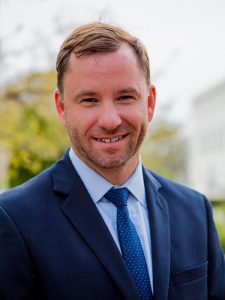By Eric Eikenberg, Everglades Foundation
Seven years ago on April 7, when Florida celebrated its first official Everglades Day, people from all over gathered to pay tribute to the many Floridians who dedicated themselves to conserving this unique ecosystem — not least of all, legendary environmentalist Marjory Stoneman Douglas, born on April 7 in 1890.
Now — in the midst of a global pandemic that has forced the mass closure of businesses and schools and kept many of us confined to our homes for almost a month — we will still come together to celebrate the Everglades, albeit in a different way.
For sure, there are some who will set out to hike the Florida Trail alone, and a few lucky souls who will be able to launch a kayak from their own back yard, but the vast majority of us likely will trade in our coolers and sunblock for another day at home and a good Wi-Fi connection to the news.
This is the new normal for the country, and like many other mission-driven organizations and businesses, we’re not letting these challenging circumstances derail us. We still have an important role to play — perhaps now more than ever.

For more than five years, The Everglades Foundation has been educating school-aged children across Florida on the value of the Everglades ecosystem. This month, the Foundation scaled up its online library of “Everglades Literacy” lessons and activities (www.evergladesliteracy.org).
Our Everglades Literacy Program, which aims to inspire a new generation of conservation stewards, normally reaches more than 3,000 teachers in 21 school districts across Florida with content for grades K-12.
Now, thanks to distance-learning tools and a tremendous appetite for online content, we’re able to deliver this material to even more people. The content will enrich students’ home-learning experiences and provide activities that will engage the entire family.
While technology is allowing us to rise to the challenge of teaching and learning about the Everglades, the Everglades itself remains more vulnerable than ever.
March was one of the driest on record for Florida, and the Everglades is, once again, experiencing drought conditions. While water is being allocated for agricultural use, there is no freshwater flowing south into Everglades National Park.
As a result, Florida Bay is reaching dangerously high salinity levels similar to those that preceded the collapse of seagrass across much of the bay in 2015. Florida Bay still has not fully recovered from that cataclysmic event.
Another one, now, would be devastating to an already compromised ecosystem and the Florida Keys economy, which is dependent on tourism, boating and fishing — and is still recovering from Hurricane Irma — has been brought to a halt by the pandemic.
In a time where frequent hand washing is essential, our daily freshwater supply, perhaps, is the most critical resource that all South Floridians need to consider. Through its recharge of the Biscayne Aquifer, the Everglades supplies that water to South Florida and, as the Miami Herald recently reported, Miami-Dade officials saw a surge in water use in March, which coincided with many people being confined to their homes.
Reconnecting the flow of freshwater from Lake Okeechobee to the Everglades, where it can replenish our drinking water aquifer, hydrate the River of Grass and restore a healthy balance to Florida Bay, is precisely what Everglades restoration is about. By doing this, restoration also cuts the wasteful and harmful high-volume discharge of water from Lake Okeechobee to the east and west coasts.
Everglades restoration is our mission. We should not be investing in risky technologies like Aquifer Storage and Recovery that inject polluted water into our aquifers, and we certainly cannot afford another “lost summer” of toxic algae blooms.
When the COVID-19 crisis passes, clean water will be the key to our state’s economic resurgence. Not only will it ensure that our state’s tourism industry makes a full recovery, Everglades restoration initiatives in particular will create thousands of shovel-ready jobs that will provide a significant stimulus for the economy.
So, as we celebrate Everglades Day — whether outdoors or in our living rooms — we have an extraordinary opportunity to take stock of what these last few weeks of isolation, upheaval, hardship and, in some cases, grave illness have taught us about how fragile life is and how much we miss the things we often take for granted.
Our environment, our Everglades, and our water are not guaranteed. As with our own personal health, these are things we must nurture and protect.
Eric Eikenberg is CEO of The Everglades Foundation.
“The Invading Sea” is the opinion arm of the Florida Climate Reporting Network, a collaborative of news organizations across the state focusing on the threats posed by the warming climate.



